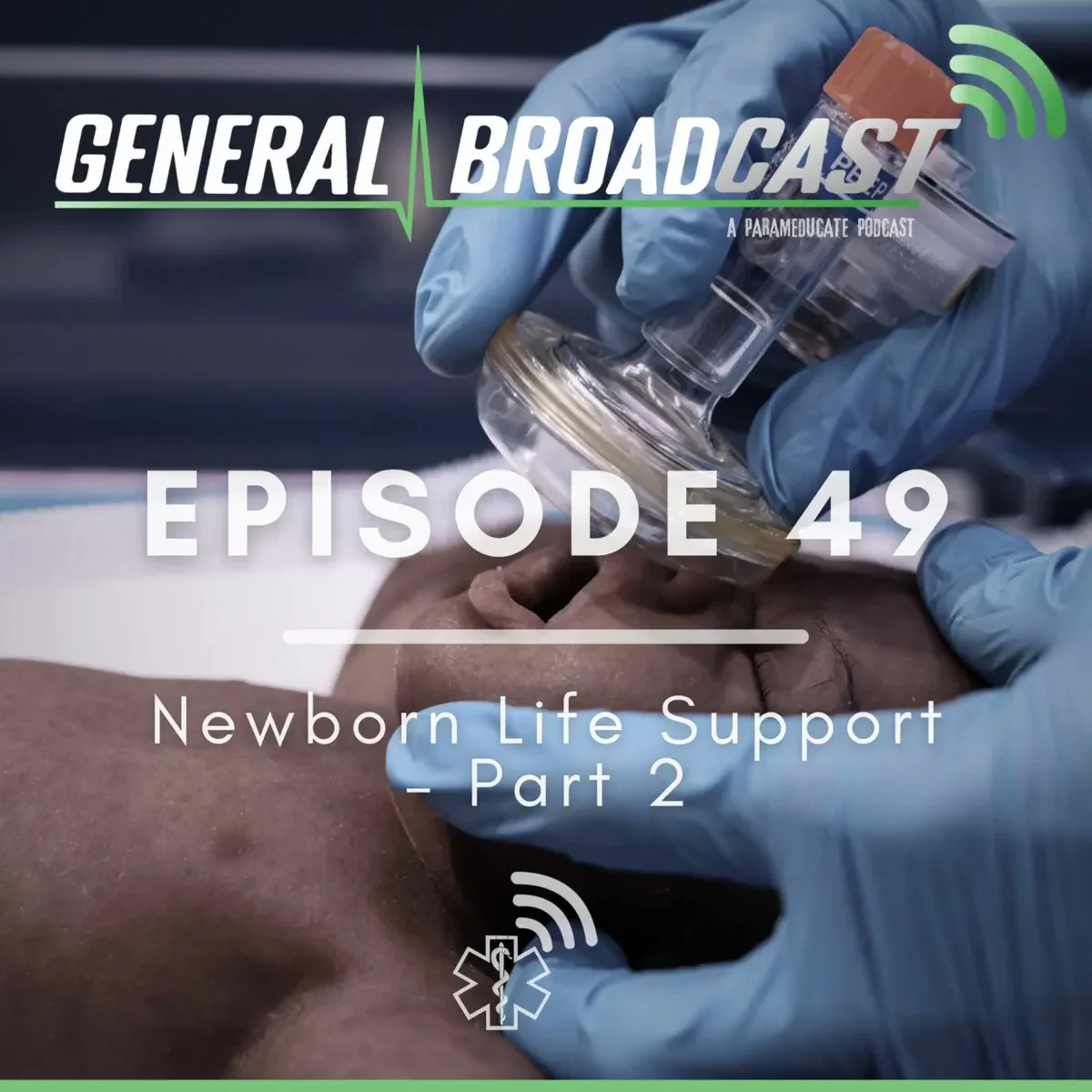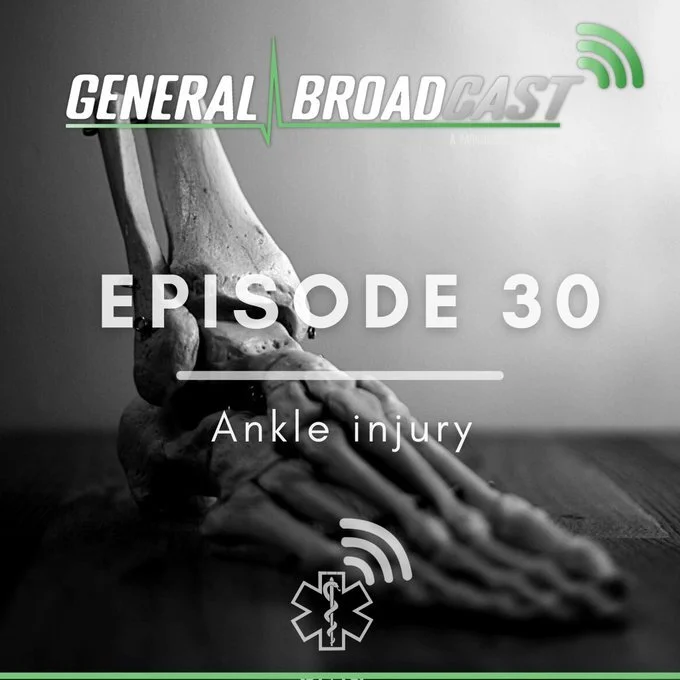This month we take a look at the emergency management of diabetic ketoacidosis (DKA). We discuss the pathophysiology, the care paramedics can provide, appropriate fluid resuscitation strategies and the treatments offered in emergency departments and on ICU/ITU.
Read MoreIn this Episode we reflect on a case of Beta Blocker overdose, we examine the pharmacology with toxicity, look at specific drugs like propanolol and how these differ, as well as the evidence behind the treatment and management of patients who present with beta blockade toxicity.
Read MoreIn this months episode, we explore one of the most challenging aspects of paramedic practice — discontinuing resuscitation and how to deliver that news with compassion and clarity. Breaking bad news following a cardiac arrest is a crucial skill, yet often done poorly. We discuss who should take the lead, how to manage dynamic prehospital environments, and how to tell families their loved one has died after a cardiac arrest.
From delivering effective warning shots to preparing families for what to expect, we share practical advice and real-world experience to help emergency care professionals navigate this sensitive situation. Whether you're a paramedic, emergency doctor, or part of a resuscitation team, this episode offers invaluable insights to improve your communication skills and patient care.
Read MoreOn the back of our last episode looking at fitness to practice and keeping ourselves safe, we thought it would be a good opportunity to reflect on the way we write medical notes and how its changed over our time as paramedics. It's also a vital part in the transition and onwards of care patients.
Read MoreThis month we were lucky enough to sit down with Andrea James, a lawyer who specialises in defending paramedics in HCPC fitness to practice hearings.
We spoke to Andrea about what is involved with fitness to practice hearings and how we can protect ourselves with quality documentation. She hands out her tips on what makes practice easy and difficult to defend.
Burns represent a special form of severe trauma which can negatively affect nearly every organ system. Despite huge advances in the care of these patients, severe burns are still associated with high morbidity and mortality long term….. and due to long hospitalization, rehabilitation, and extensive scar treatment, severe burn injuries rank among the most expensive traumatic injuries with regard associated health care costs. They are also conditions where the early and effective emergency care we deliver can be incredibly impactful to outcomes, function and survivability.
This month we look at the treatment and assessment of burns for emergency clinicians and paramedics. We also cover the evidence behind certain areas of practice, like do you get ECG changes from electrical burns? and which symptoms are most likely to be features of airway burns
Read MoreRenal colic has several mimics which are life threatening emergencies, indeed the disease itself can have a wide spectrum of complications.
This month we look at the diagnosis and assessment of nephrolithiasis, the management and who to refer patients to.
Read MoreThis month we look at managing hypoglycaemia, the perfect episode to listen to if you're just starting your educational journey as a student paramedic! But don't think this is only for newbies, theres loads of information in there for experienced medical students and qualified emergency practitioners alike. Learn about the physiology of Diabetes mellitus, how drugs like glucagon work as well as when we might need to consider refering a patient to the DVLA because of their hypo's.
Read MoreThis month we take a look at nitrate poisoning. It may not be the most common emergency case to present to prehospital clinicians, but cases of it do appear to be on the rise.
So join us as we talk about methaemoglobinemia, safety on scene, protecting rescuers and the assessment and care of these patients.
mpact brain apnoea is the cessation or disruption of the inate breathing mechanism following a blow to the head. Its possible for this to result in the death of patients without any visible damage to the brain or surrounding blood vessels.
This month we discuss this, the development of a hypoxic brain injury, the resultant catecholamine release or catacholamine "storm" and what ambulance crews and emergency clinicians can do to help treat these patients.
Prehospital Traumatic Cardiac Arrest (TCA) is a rare and particularly stressful presentation to paramedics and emergency clinicians.
We should be comfortable with the different algorithm rescusers should use in resuscitation and understand the reasonings for modifications in these low output states in trauma.
So, why dont we do chest compressions in a traumatic cardiac arrest? Should TCA's be given adrenaline and what does HOTT Stand for? We've got the answers to all this and more.
Pulmonary Embolism is a common emergency presentation to paramedics and emergency medicine clinicians.
We discuss why PEs cause right ventricular strain, the types of PE from massive, to submassive and subsegmental, how to work up and diagnose pulmonary embolism, how do D-Dimers work? and what are the high risk pulmonary embolism criteria.
All diving represents a hazard, as humans we're not designed to live under water. The deeper divers go and the longer they dive for, the greater the potential risks. Although the bends or decompression sickness, arterial gas embolisims and other diving related emergencies arent the most common presentation to emergency care clinicians. We thought it would be good to revise this medical presenation.
In partnership with our colleagues at HM Coastguard we've developed this CPD podcast. We talk to a Deepwater technical dive instructor from purpleturtle diving, and a dive doctor from DDRC healthcare.
With thanks to Toni from www.purpleturtlediving.com/
and Felix from www.ddrc.org/
Patient safety should be the key aim at the heart of any healthcare system, including the NHS. Yet we know that every single day, patients come to avoidable harm as a result of errors and mistakes. Human Factors and CRM have become increasingly common schools of thought after the tragic Elaine Bromley case and the great work coming from the clinical human factors group.
This month we look at the Human Factors at play in a pre-hospital RTC case study and consider how ambulance clinicians and first responders might be affected by these. We discuss Startle and Suprise, Amigdyla highjack, Bandwidth, Leadership and heirarchies within teams, communication skills and graduated language.
Heroin overdose or other opiate poisoning is an emergency that most paramedics and ambulance staff will be familiar with. However, there are some elements that can cause uncertainty for responders. What comes first CPR or naloxone? What are the signs of opiate toxicity? How much naloxone antidote do you give to someone to reverse opiate induced respiratory arrest?
Read More**This podcast features discussion of suicide and hanging**
Hanging is one of the most common methods of suicide in the western world. Ambualnce crew are likely to come across these cases in the course of their work and so it is important that we understand the pathophysiology and managment of them.
This month we discuss how hanging causes cardiac arrest, clarrify commonly used terms, discuss the managment as well as emotional support for family and staff involved in these cases.
Make sure you debrief the incident, take care of your own emotional and mental health after incidents such as these. The ambulance staff crisis phone line is 0300 373 0898. Look after your health and that of your colleagues.
Ankle injuries present to ambulance staff across a wide spectrum, from the minor soft tissue injury that can be discharged on scene, to the fracture dislocation. We need to be confident in assessing and managing the full spectrum of these injuries,
This month we talk about manipulating fractures, prophylactic antibiotics, as well as how to decide which injuries need an x-ray and what advice to give those patients that don't.




















